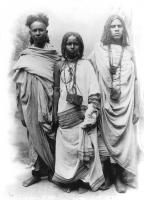 Nomads can be understood in different contexts, as in an anthropological sense, nomads as a new concept in philosophy and nomads as a real and metaphorical concept for new artistic praxis both in real and metaphorical senses. The real sense refers to art among nomadic people, while the metaphorical usage pertains to the use of nomadism in new artistic and theatrical creations.
Nomads can be understood in different contexts, as in an anthropological sense, nomads as a new concept in philosophy and nomads as a real and metaphorical concept for new artistic praxis both in real and metaphorical senses. The real sense refers to art among nomadic people, while the metaphorical usage pertains to the use of nomadism in new artistic and theatrical creations.
20.12.2011 | by Knut OveArntzen
 For the most part, prevailing definitions of gender in African studies have come from disciplines located within the Western body of knowledge. Scholars are often unaware how much these definitions are steeped in the mores and norms of the Judeo-Christian tradition, and the social conventions of European and European American cultures.
For the most part, prevailing definitions of gender in African studies have come from disciplines located within the Western body of knowledge. Scholars are often unaware how much these definitions are steeped in the mores and norms of the Judeo-Christian tradition, and the social conventions of European and European American cultures.
01.11.2011 | by Nkiru Nzegwu
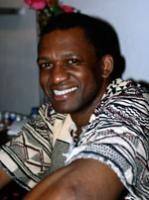 My concern is not to say who is and who is not Angolan. In Angola, as in any modern society, being Angolan is defined by the nationality law. Portugal began to nationalize all the native of colonies during the colonial war. Denationalizing them was among the first political acts of the government resulted from the 25th of April.
My concern is not to say who is and who is not Angolan. In Angola, as in any modern society, being Angolan is defined by the nationality law. Portugal began to nationalize all the native of colonies during the colonial war. Denationalizing them was among the first political acts of the government resulted from the 25th of April.
09.10.2011 | by António Tomás
 I set lusosphere as a debate far from any substance, a virtual focus that, referring to Portuguese language, develops its own dynamics in different national contexts. Far from being in front of a consensual thought, lusosphere hovers on situations of tension that put in contact these different contexts with each other.
I set lusosphere as a debate far from any substance, a virtual focus that, referring to Portuguese language, develops its own dynamics in different national contexts. Far from being in front of a consensual thought, lusosphere hovers on situations of tension that put in contact these different contexts with each other.
17.09.2011 | by Omar Thomaz Ribeiro
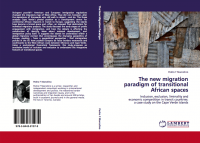 Pedro F. Marcelino has released a study on the new migratory paradigm emerging in post-9/11 Cape Verde. The study reflects a socio-economic context in which out-migration to traditional overseas destinations is no longer the only migratory phenomenon in the islands. The country has seen a steep increase in part- and full-time resident Europeans, as well as Chinese and continental African migrants. The research proposes that anti-terrorist measures and immigration control policies in both the USA and the EU after 9/11 have altered the migratory map of West Africa, whilst failing to curb people’s aspirations to depart and seek a better life.
Pedro F. Marcelino has released a study on the new migratory paradigm emerging in post-9/11 Cape Verde. The study reflects a socio-economic context in which out-migration to traditional overseas destinations is no longer the only migratory phenomenon in the islands. The country has seen a steep increase in part- and full-time resident Europeans, as well as Chinese and continental African migrants. The research proposes that anti-terrorist measures and immigration control policies in both the USA and the EU after 9/11 have altered the migratory map of West Africa, whilst failing to curb people’s aspirations to depart and seek a better life.
16.09.2011 | by Pedro José-Marcellino aka P.J. Marcellino
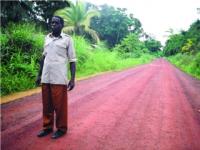 Stating that sorcery exists in Mozambique is a mere declaration of an obvious and recurring fact. People may use it in order to obtain active results or to protect oneself from undesirable events, in the pursuance of legitimate or illegitimate, beneficial or malevolent goals. The effectiveness of this practice is, nonetheless, an issue that tends to divide readers between outspoken scepticism, attitudes of plausible doubt, complex speeches about its symbolic efficacy, and a somewhat apprehensive fear or agreement.
Stating that sorcery exists in Mozambique is a mere declaration of an obvious and recurring fact. People may use it in order to obtain active results or to protect oneself from undesirable events, in the pursuance of legitimate or illegitimate, beneficial or malevolent goals. The effectiveness of this practice is, nonetheless, an issue that tends to divide readers between outspoken scepticism, attitudes of plausible doubt, complex speeches about its symbolic efficacy, and a somewhat apprehensive fear or agreement.
15.09.2011 | by Paulo Granjo
 It is undeniable that in Lisbon there is a natural approximation of Portuguese-speaking people, not Portuguese of nationality, even when they do not share the same race and culture. National differences reduce face to the discrimination which all are submitted to. And it makes full sense to think about this reduction as a need for resistance to discrimination, because the metropole turns homogeneous all the ex-colonized, grouping them in the categories of “nigger”, “black”, “immigrant”.
It is undeniable that in Lisbon there is a natural approximation of Portuguese-speaking people, not Portuguese of nationality, even when they do not share the same race and culture. National differences reduce face to the discrimination which all are submitted to. And it makes full sense to think about this reduction as a need for resistance to discrimination, because the metropole turns homogeneous all the ex-colonized, grouping them in the categories of “nigger”, “black”, “immigrant”.
03.09.2011 | by António Tomás
 Lusosphere has been traditionally intended on the basis of progressively reducing dimensions: the geographic one, that unite the eight countries of the Community of Portuguese Speaking Countries (Portuguese: Comunidade dos Países de Língua Portuguesa, CPLP); the political one, that is confined to Portuguese speaking communities spread all over the world; and finally, the historical and cultural one, related to the Portuguese inheritance in different parts of the earth during the maritime expansion and the colonial empire.
Lusosphere has been traditionally intended on the basis of progressively reducing dimensions: the geographic one, that unite the eight countries of the Community of Portuguese Speaking Countries (Portuguese: Comunidade dos Países de Língua Portuguesa, CPLP); the political one, that is confined to Portuguese speaking communities spread all over the world; and finally, the historical and cultural one, related to the Portuguese inheritance in different parts of the earth during the maritime expansion and the colonial empire.
03.08.2011 | by Lurdes Macedo
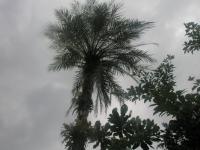 Although most of the moral economy theorists discussed so far are critics of historical capitalism, few of them are Marxists. Indeed, whether stressing market rationalism or communal norms, they refuse (often explicitly) to discuss peasant society in class terms (see especially Magagna, forthcoming). Marxist analyses of the peasantry, along with "peasant studies" in general may indeed be out of fashion (Roseberry 1989); nonetheless it is Marxists who continue to search for the cultural components of Third World responses to capitalism-- including witchcraft beliefs. The results may be problematic, but they nonetheless point to paths of inquiry not opened by the individualist and functionalist approaches of other moral economy theories.
Although most of the moral economy theorists discussed so far are critics of historical capitalism, few of them are Marxists. Indeed, whether stressing market rationalism or communal norms, they refuse (often explicitly) to discuss peasant society in class terms (see especially Magagna, forthcoming). Marxist analyses of the peasantry, along with "peasant studies" in general may indeed be out of fashion (Roseberry 1989); nonetheless it is Marxists who continue to search for the cultural components of Third World responses to capitalism-- including witchcraft beliefs. The results may be problematic, but they nonetheless point to paths of inquiry not opened by the individualist and functionalist approaches of other moral economy theories.
11.07.2011 | by Ralph A. Austen
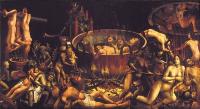 The central trope of the various efforts to define moral economy has been an opposition between, on the one hand, the maximizing individual and ever-expanding market of classical political economy, and on the other a community governed by norms of collective survival and believing in a zero-sum universe: i.e. a world where all profit is gained at someone else's loss. The communal/zero-sum side of this equation is broadly consistent with African beliefs identifying capitalism and witchcraft as the dangerous appropriation of limited reproductive resources by selfish individuals.
The central trope of the various efforts to define moral economy has been an opposition between, on the one hand, the maximizing individual and ever-expanding market of classical political economy, and on the other a community governed by norms of collective survival and believing in a zero-sum universe: i.e. a world where all profit is gained at someone else's loss. The communal/zero-sum side of this equation is broadly consistent with African beliefs identifying capitalism and witchcraft as the dangerous appropriation of limited reproductive resources by selfish individuals.
21.06.2011 | by Ralph A. Austen
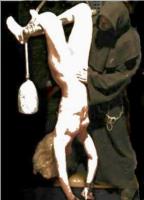 Witchcraft, as used here, is also an abstraction, but one intended to represent directly the terms used by African and other societies to describe their own beliefs and practices. The introductory section of the essay will attempt to identify an African witchcraft idiom which gives broader meaning to texts such as the Beninois oral account of slave-cowry transactions. The concluding section will examine the early-modern European "witch craze" in order to consider how the elaboration of common elements in European and African culture both reflects and mediates differing trajectories into the modern world
Witchcraft, as used here, is also an abstraction, but one intended to represent directly the terms used by African and other societies to describe their own beliefs and practices. The introductory section of the essay will attempt to identify an African witchcraft idiom which gives broader meaning to texts such as the Beninois oral account of slave-cowry transactions. The concluding section will examine the early-modern European "witch craze" in order to consider how the elaboration of common elements in European and African culture both reflects and mediates differing trajectories into the modern world
19.06.2011 | by Ralph A. Austen
 When the Africans discovered that the mato inspired such horror in the Portuguese, they made it their habitual refuge, patiently negotiating from there with the intruders. Queen Njinga, in Angola, played this game to perfection, thus provoking the increasing anger of the Portuguese. Referring to the subterfuges the Portuguese governor opposed to the liberation of her sister, prisoner in Luanda, she wrote on 13 December 1655: “For these and other betrayals I took shelter in the matos, far from my territories” (Cadornega 1972, II: 501). By withdrawing to the forest, the queen was not only obeying a military imperative, but also putting pressure on the Portuguese.
When the Africans discovered that the mato inspired such horror in the Portuguese, they made it their habitual refuge, patiently negotiating from there with the intruders. Queen Njinga, in Angola, played this game to perfection, thus provoking the increasing anger of the Portuguese. Referring to the subterfuges the Portuguese governor opposed to the liberation of her sister, prisoner in Luanda, she wrote on 13 December 1655: “For these and other betrayals I took shelter in the matos, far from my territories” (Cadornega 1972, II: 501). By withdrawing to the forest, the queen was not only obeying a military imperative, but also putting pressure on the Portuguese.
17.05.2011 | by Martín Lienhard
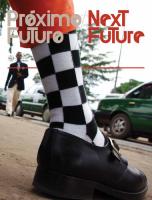 Since the 1960s, there has been great excitement in many African countries with the creation of art schools. Together with the first exhibitions of self-taught artists, there have also been the first festivals of black art, and even the work of African photographers has begun to establish a reputation for itself in Africa, in European countries and in some forums in the USA. The history of these artistic movements is already being written, describing their schools, their leading figures and their international impact.
Since the 1960s, there has been great excitement in many African countries with the creation of art schools. Together with the first exhibitions of self-taught artists, there have also been the first festivals of black art, and even the work of African photographers has begun to establish a reputation for itself in Africa, in European countries and in some forums in the USA. The history of these artistic movements is already being written, describing their schools, their leading figures and their international impact.
11.05.2011 | by António Pinto Ribeiro
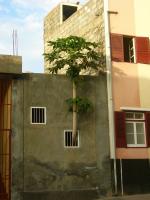 Body, consumption, sexuality, expression, festivity, communality and informality will be analyzed as the central places of the new challenges, negotiations and innovations of citizenship of contemporary young people in Cape Verde.
Body, consumption, sexuality, expression, festivity, communality and informality will be analyzed as the central places of the new challenges, negotiations and innovations of citizenship of contemporary young people in Cape Verde.
01.05.2011 | by Filipe Martins
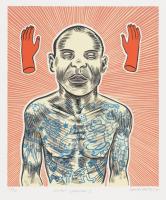 ost-independence Africa is a space of ambivalence, where the aspirations of her people are, ever so often, opposed by her own leaders and by influences from the outside. Her wealth is largely crippled by the West’s use of financial control to make the continents resources available to its own ends. And in recent years, China’s rapidly intensifying economic influence in Africa has become yet another reminder of a new global actor that feeds on globalization and the resultant economic and political expansion, and who has not shied away from reaching out its tentacles to areas troubled by conflict and weak governance. In this conflicting terrain, we must carry with us the words of Walter Benjamin: “The tradition of the oppressed teaches us that the “state of emergency” in which we live is not an exception but a rule.”
ost-independence Africa is a space of ambivalence, where the aspirations of her people are, ever so often, opposed by her own leaders and by influences from the outside. Her wealth is largely crippled by the West’s use of financial control to make the continents resources available to its own ends. And in recent years, China’s rapidly intensifying economic influence in Africa has become yet another reminder of a new global actor that feeds on globalization and the resultant economic and political expansion, and who has not shied away from reaching out its tentacles to areas troubled by conflict and weak governance. In this conflicting terrain, we must carry with us the words of Walter Benjamin: “The tradition of the oppressed teaches us that the “state of emergency” in which we live is not an exception but a rule.”
25.04.2011 | by Stina Edblom
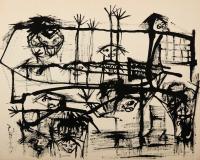 Pancho Guedes (born in 1925), architect, painter, sculptor, collector and patron, played an important cultural role during the years he lived in Mozambique. This is true because of his own work, which brought together several worlds, as well as for his role as mediator between artists of all traditions, the wider public (local and international), and the institutional artistic world, which he had access to at the time.
Pancho Guedes (born in 1925), architect, painter, sculptor, collector and patron, played an important cultural role during the years he lived in Mozambique. This is true because of his own work, which brought together several worlds, as well as for his role as mediator between artists of all traditions, the wider public (local and international), and the institutional artistic world, which he had access to at the time.
20.01.2011 | by Alda Costa
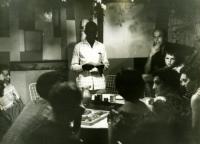 In contrast to the context of Francophile Africa, where the main interest was in literary works and an idea of blackness that involved the relatively contentious appropriation of European modernity, certain mediators, located further south, questioned the possible evolution of local cultures and of their own major artistic traditions, free from the subordination of European models, which were viewed in a critical way in terms of the visual arts. Within the framework of the inevitable death of the tribal art which was characteristic of traditional societies (even via tourist reproductions), new and spontaneous forms of artistic production (and also sophisticated forms of syncretism in the case of "natural synthesis" proposed by Uche Okeke in the Zaria School) were being sought without any nativist essentialism (in the cases of Beier, Guedes and Beinart).
In contrast to the context of Francophile Africa, where the main interest was in literary works and an idea of blackness that involved the relatively contentious appropriation of European modernity, certain mediators, located further south, questioned the possible evolution of local cultures and of their own major artistic traditions, free from the subordination of European models, which were viewed in a critical way in terms of the visual arts. Within the framework of the inevitable death of the tribal art which was characteristic of traditional societies (even via tourist reproductions), new and spontaneous forms of artistic production (and also sophisticated forms of syncretism in the case of "natural synthesis" proposed by Uche Okeke in the Zaria School) were being sought without any nativist essentialism (in the cases of Beier, Guedes and Beinart).
17.12.2010 | by Alexandre Pomar
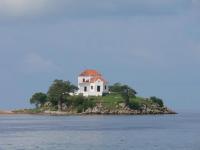 The triangular trade relationship liking Africa and Europe is well known. The “dark continent” supplied the slave labour that America needed, and indeed contributed to its growth, expansion and development. Slave labour also fed into European commercial interests, also generating economic, social, technological, cultural and other development. It is an issue which had repercussions in the relationship between the three continents and its consequences are still the subject of debate, as demographic studies illustrate.
The triangular trade relationship liking Africa and Europe is well known. The “dark continent” supplied the slave labour that America needed, and indeed contributed to its growth, expansion and development. Slave labour also fed into European commercial interests, also generating economic, social, technological, cultural and other development. It is an issue which had repercussions in the relationship between the three continents and its consequences are still the subject of debate, as demographic studies illustrate.
29.11.2010 | by Aurora da Fonseca Ferreira
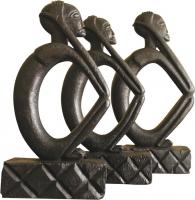 Kundi had succeeded Iala Maku, and now he was getting old. Harmony among the peoples of Lunda was getting strained. Who would succeed the old man Kundi? One of the boys? Tchinguri or Tchinhama? Or the girl, Lwéji, the youngest daughter of his second wife? They say the brothers could not get on together. Tchinguri was more dashing, Tchinhama more thoughtful. However that may be, one day the boys burst into their father's tchota (palace), drunk as lords on palm wine and went for the old man because both of them wanted to take over. The old man was half blind and dying, but he cursed them and told them there and then that neither of them would take his place. He called the macotas (the elders) and said he was handing over to Lwéji, the boys' half-sister. And so the Muatyânvua empire started in heh village of Mussumba, with the marriage of Lwéji, the new Lunda queen, to the Baluba hunter Tchibinda Ilunga.
Kundi had succeeded Iala Maku, and now he was getting old. Harmony among the peoples of Lunda was getting strained. Who would succeed the old man Kundi? One of the boys? Tchinguri or Tchinhama? Or the girl, Lwéji, the youngest daughter of his second wife? They say the brothers could not get on together. Tchinguri was more dashing, Tchinhama more thoughtful. However that may be, one day the boys burst into their father's tchota (palace), drunk as lords on palm wine and went for the old man because both of them wanted to take over. The old man was half blind and dying, but he cursed them and told them there and then that neither of them would take his place. He called the macotas (the elders) and said he was handing over to Lwéji, the boys' half-sister. And so the Muatyânvua empire started in heh village of Mussumba, with the marriage of Lwéji, the new Lunda queen, to the Baluba hunter Tchibinda Ilunga.
31.10.2010 | by Carlos Lousada
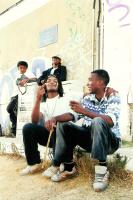 I set out to understand the modes of sociability of the Red Eyes Gang, a group of youths from Arrentela, Seixal, on the outskirts of Lisbon. The majority of them are children of African immigrants from countries that were formerly Portuguese colonies, and live in socioeconomic conditions well below those of the Portuguese. All were born in Portugal or arrived very young, never knowing their parents' countries of origin. However, they appropriate some of their ethnic and cultural heritages because of the stigmatization and racism to which they are subjected, reworking their condition of being poor and black. They do not mechanically reproduce the way of life and ethnic influences of their families, but reinvent them with imagination, thus producing positive statements about themselves.
I set out to understand the modes of sociability of the Red Eyes Gang, a group of youths from Arrentela, Seixal, on the outskirts of Lisbon. The majority of them are children of African immigrants from countries that were formerly Portuguese colonies, and live in socioeconomic conditions well below those of the Portuguese. All were born in Portugal or arrived very young, never knowing their parents' countries of origin. However, they appropriate some of their ethnic and cultural heritages because of the stigmatization and racism to which they are subjected, reworking their condition of being poor and black. They do not mechanically reproduce the way of life and ethnic influences of their families, but reinvent them with imagination, thus producing positive statements about themselves.
21.10.2010 | by Otávio Raposo
 Nomads can be understood in different contexts, as in an anthropological sense, nomads as a new concept in philosophy and nomads as a real and metaphorical concept for new artistic praxis both in real and metaphorical senses. The real sense refers to art among nomadic people, while the metaphorical usage pertains to the use of nomadism in new artistic and theatrical creations.
Nomads can be understood in different contexts, as in an anthropological sense, nomads as a new concept in philosophy and nomads as a real and metaphorical concept for new artistic praxis both in real and metaphorical senses. The real sense refers to art among nomadic people, while the metaphorical usage pertains to the use of nomadism in new artistic and theatrical creations.  For the most part, prevailing definitions of gender in African studies have come from disciplines located within the Western body of knowledge. Scholars are often unaware how much these definitions are steeped in the mores and norms of the Judeo-Christian tradition, and the social conventions of European and European American cultures.
For the most part, prevailing definitions of gender in African studies have come from disciplines located within the Western body of knowledge. Scholars are often unaware how much these definitions are steeped in the mores and norms of the Judeo-Christian tradition, and the social conventions of European and European American cultures.  My concern is not to say who is and who is not Angolan. In Angola, as in any modern society, being Angolan is defined by the nationality law. Portugal began to nationalize all the native of colonies during the colonial war. Denationalizing them was among the first political acts of the government resulted from the 25th of April.
My concern is not to say who is and who is not Angolan. In Angola, as in any modern society, being Angolan is defined by the nationality law. Portugal began to nationalize all the native of colonies during the colonial war. Denationalizing them was among the first political acts of the government resulted from the 25th of April.  I set lusosphere as a debate far from any substance, a virtual focus that, referring to Portuguese language, develops its own dynamics in different national contexts. Far from being in front of a consensual thought, lusosphere hovers on situations of tension that put in contact these different contexts with each other.
I set lusosphere as a debate far from any substance, a virtual focus that, referring to Portuguese language, develops its own dynamics in different national contexts. Far from being in front of a consensual thought, lusosphere hovers on situations of tension that put in contact these different contexts with each other.  Pedro F. Marcelino has released a study on the new migratory paradigm emerging in post-9/11 Cape Verde. The study reflects a socio-economic context in which out-migration to traditional overseas destinations is no longer the only migratory phenomenon in the islands. The country has seen a steep increase in part- and full-time resident Europeans, as well as Chinese and continental African migrants. The research proposes that anti-terrorist measures and immigration control policies in both the USA and the EU after 9/11 have altered the migratory map of West Africa, whilst failing to curb people’s aspirations to depart and seek a better life.
Pedro F. Marcelino has released a study on the new migratory paradigm emerging in post-9/11 Cape Verde. The study reflects a socio-economic context in which out-migration to traditional overseas destinations is no longer the only migratory phenomenon in the islands. The country has seen a steep increase in part- and full-time resident Europeans, as well as Chinese and continental African migrants. The research proposes that anti-terrorist measures and immigration control policies in both the USA and the EU after 9/11 have altered the migratory map of West Africa, whilst failing to curb people’s aspirations to depart and seek a better life.  Stating that sorcery exists in Mozambique is a mere declaration of an obvious and recurring fact. People may use it in order to obtain active results or to protect oneself from undesirable events, in the pursuance of legitimate or illegitimate, beneficial or malevolent goals. The effectiveness of this practice is, nonetheless, an issue that tends to divide readers between outspoken scepticism, attitudes of plausible doubt, complex speeches about its symbolic efficacy, and a somewhat apprehensive fear or agreement.
Stating that sorcery exists in Mozambique is a mere declaration of an obvious and recurring fact. People may use it in order to obtain active results or to protect oneself from undesirable events, in the pursuance of legitimate or illegitimate, beneficial or malevolent goals. The effectiveness of this practice is, nonetheless, an issue that tends to divide readers between outspoken scepticism, attitudes of plausible doubt, complex speeches about its symbolic efficacy, and a somewhat apprehensive fear or agreement.  It is undeniable that in Lisbon there is a natural approximation of Portuguese-speaking people, not Portuguese of nationality, even when they do not share the same race and culture. National differences reduce face to the discrimination which all are submitted to. And it makes full sense to think about this reduction as a need for resistance to discrimination, because the metropole turns homogeneous all the ex-colonized, grouping them in the categories of “nigger”, “black”, “immigrant”.
It is undeniable that in Lisbon there is a natural approximation of Portuguese-speaking people, not Portuguese of nationality, even when they do not share the same race and culture. National differences reduce face to the discrimination which all are submitted to. And it makes full sense to think about this reduction as a need for resistance to discrimination, because the metropole turns homogeneous all the ex-colonized, grouping them in the categories of “nigger”, “black”, “immigrant”.  Lusosphere has been traditionally intended on the basis of progressively reducing dimensions: the geographic one, that unite the eight countries of the Community of Portuguese Speaking Countries (Portuguese: Comunidade dos Países de Língua Portuguesa, CPLP); the political one, that is confined to Portuguese speaking communities spread all over the world; and finally, the historical and cultural one, related to the Portuguese inheritance in different parts of the earth during the maritime expansion and the colonial empire.
Lusosphere has been traditionally intended on the basis of progressively reducing dimensions: the geographic one, that unite the eight countries of the Community of Portuguese Speaking Countries (Portuguese: Comunidade dos Países de Língua Portuguesa, CPLP); the political one, that is confined to Portuguese speaking communities spread all over the world; and finally, the historical and cultural one, related to the Portuguese inheritance in different parts of the earth during the maritime expansion and the colonial empire.  Although most of the moral economy theorists discussed so far are critics of historical capitalism, few of them are Marxists. Indeed, whether stressing market rationalism or communal norms, they refuse (often explicitly) to discuss peasant society in class terms (see especially Magagna, forthcoming). Marxist analyses of the peasantry, along with "peasant studies" in general may indeed be out of fashion (Roseberry 1989); nonetheless it is Marxists who continue to search for the cultural components of Third World responses to capitalism-- including witchcraft beliefs. The results may be problematic, but they nonetheless point to paths of inquiry not opened by the individualist and functionalist approaches of other moral economy theories.
Although most of the moral economy theorists discussed so far are critics of historical capitalism, few of them are Marxists. Indeed, whether stressing market rationalism or communal norms, they refuse (often explicitly) to discuss peasant society in class terms (see especially Magagna, forthcoming). Marxist analyses of the peasantry, along with "peasant studies" in general may indeed be out of fashion (Roseberry 1989); nonetheless it is Marxists who continue to search for the cultural components of Third World responses to capitalism-- including witchcraft beliefs. The results may be problematic, but they nonetheless point to paths of inquiry not opened by the individualist and functionalist approaches of other moral economy theories.  The central trope of the various efforts to define moral economy has been an opposition between, on the one hand, the maximizing individual and ever-expanding market of classical political economy, and on the other a community governed by norms of collective survival and believing in a zero-sum universe: i.e. a world where all profit is gained at someone else's loss. The communal/zero-sum side of this equation is broadly consistent with African beliefs identifying capitalism and witchcraft as the dangerous appropriation of limited reproductive resources by selfish individuals.
The central trope of the various efforts to define moral economy has been an opposition between, on the one hand, the maximizing individual and ever-expanding market of classical political economy, and on the other a community governed by norms of collective survival and believing in a zero-sum universe: i.e. a world where all profit is gained at someone else's loss. The communal/zero-sum side of this equation is broadly consistent with African beliefs identifying capitalism and witchcraft as the dangerous appropriation of limited reproductive resources by selfish individuals.  Witchcraft, as used here, is also an abstraction, but one intended to represent directly the terms used by African and other societies to describe their own beliefs and practices. The introductory section of the essay will attempt to identify an African witchcraft idiom which gives broader meaning to texts such as the Beninois oral account of slave-cowry transactions. The concluding section will examine the early-modern European "witch craze" in order to consider how the elaboration of common elements in European and African culture both reflects and mediates differing trajectories into the modern world
Witchcraft, as used here, is also an abstraction, but one intended to represent directly the terms used by African and other societies to describe their own beliefs and practices. The introductory section of the essay will attempt to identify an African witchcraft idiom which gives broader meaning to texts such as the Beninois oral account of slave-cowry transactions. The concluding section will examine the early-modern European "witch craze" in order to consider how the elaboration of common elements in European and African culture both reflects and mediates differing trajectories into the modern world  When the Africans discovered that the mato inspired such horror in the Portuguese, they made it their habitual refuge, patiently negotiating from there with the intruders. Queen Njinga, in Angola, played this game to perfection, thus provoking the increasing anger of the Portuguese. Referring to the subterfuges the Portuguese governor opposed to the liberation of her sister, prisoner in Luanda, she wrote on 13 December 1655: “For these and other betrayals I took shelter in the matos, far from my territories” (Cadornega 1972, II: 501). By withdrawing to the forest, the queen was not only obeying a military imperative, but also putting pressure on the Portuguese.
When the Africans discovered that the mato inspired such horror in the Portuguese, they made it their habitual refuge, patiently negotiating from there with the intruders. Queen Njinga, in Angola, played this game to perfection, thus provoking the increasing anger of the Portuguese. Referring to the subterfuges the Portuguese governor opposed to the liberation of her sister, prisoner in Luanda, she wrote on 13 December 1655: “For these and other betrayals I took shelter in the matos, far from my territories” (Cadornega 1972, II: 501). By withdrawing to the forest, the queen was not only obeying a military imperative, but also putting pressure on the Portuguese.  Since the 1960s, there has been great excitement in many African countries with the creation of art schools. Together with the first exhibitions of self-taught artists, there have also been the first festivals of black art, and even the work of African photographers has begun to establish a reputation for itself in Africa, in European countries and in some forums in the USA. The history of these artistic movements is already being written, describing their schools, their leading figures and their international impact.
Since the 1960s, there has been great excitement in many African countries with the creation of art schools. Together with the first exhibitions of self-taught artists, there have also been the first festivals of black art, and even the work of African photographers has begun to establish a reputation for itself in Africa, in European countries and in some forums in the USA. The history of these artistic movements is already being written, describing their schools, their leading figures and their international impact.  Body, consumption, sexuality, expression, festivity, communality and informality will be analyzed as the central places of the new challenges, negotiations and innovations of citizenship of contemporary young people in Cape Verde.
Body, consumption, sexuality, expression, festivity, communality and informality will be analyzed as the central places of the new challenges, negotiations and innovations of citizenship of contemporary young people in Cape Verde.  ost-independence Africa is a space of ambivalence, where the aspirations of her people are, ever so often, opposed by her own leaders and by influences from the outside. Her wealth is largely crippled by the West’s use of financial control to make the continents resources available to its own ends. And in recent years, China’s rapidly intensifying economic influence in Africa has become yet another reminder of a new global actor that feeds on globalization and the resultant economic and political expansion, and who has not shied away from reaching out its tentacles to areas troubled by conflict and weak governance. In this conflicting terrain, we must carry with us the words of Walter Benjamin: “The tradition of the oppressed teaches us that the “state of emergency” in which we live is not an exception but a rule.”
ost-independence Africa is a space of ambivalence, where the aspirations of her people are, ever so often, opposed by her own leaders and by influences from the outside. Her wealth is largely crippled by the West’s use of financial control to make the continents resources available to its own ends. And in recent years, China’s rapidly intensifying economic influence in Africa has become yet another reminder of a new global actor that feeds on globalization and the resultant economic and political expansion, and who has not shied away from reaching out its tentacles to areas troubled by conflict and weak governance. In this conflicting terrain, we must carry with us the words of Walter Benjamin: “The tradition of the oppressed teaches us that the “state of emergency” in which we live is not an exception but a rule.”  Pancho Guedes (born in 1925), architect, painter, sculptor, collector and patron, played an important cultural role during the years he lived in Mozambique. This is true because of his own work, which brought together several worlds, as well as for his role as mediator between artists of all traditions, the wider public (local and international), and the institutional artistic world, which he had access to at the time.
Pancho Guedes (born in 1925), architect, painter, sculptor, collector and patron, played an important cultural role during the years he lived in Mozambique. This is true because of his own work, which brought together several worlds, as well as for his role as mediator between artists of all traditions, the wider public (local and international), and the institutional artistic world, which he had access to at the time.  In contrast to the context of Francophile Africa, where the main interest was in literary works and an idea of blackness that involved the relatively contentious appropriation of European modernity, certain mediators, located further south, questioned the possible evolution of local cultures and of their own major artistic traditions, free from the subordination of European models, which were viewed in a critical way in terms of the visual arts. Within the framework of the inevitable death of the tribal art which was characteristic of traditional societies (even via tourist reproductions), new and spontaneous forms of artistic production (and also sophisticated forms of syncretism in the case of "natural synthesis" proposed by Uche Okeke in the Zaria School) were being sought without any nativist essentialism (in the cases of Beier, Guedes and Beinart).
In contrast to the context of Francophile Africa, where the main interest was in literary works and an idea of blackness that involved the relatively contentious appropriation of European modernity, certain mediators, located further south, questioned the possible evolution of local cultures and of their own major artistic traditions, free from the subordination of European models, which were viewed in a critical way in terms of the visual arts. Within the framework of the inevitable death of the tribal art which was characteristic of traditional societies (even via tourist reproductions), new and spontaneous forms of artistic production (and also sophisticated forms of syncretism in the case of "natural synthesis" proposed by Uche Okeke in the Zaria School) were being sought without any nativist essentialism (in the cases of Beier, Guedes and Beinart).  The triangular trade relationship liking Africa and Europe is well known. The “dark continent” supplied the slave labour that America needed, and indeed contributed to its growth, expansion and development. Slave labour also fed into European commercial interests, also generating economic, social, technological, cultural and other development. It is an issue which had repercussions in the relationship between the three continents and its consequences are still the subject of debate, as demographic studies illustrate.
The triangular trade relationship liking Africa and Europe is well known. The “dark continent” supplied the slave labour that America needed, and indeed contributed to its growth, expansion and development. Slave labour also fed into European commercial interests, also generating economic, social, technological, cultural and other development. It is an issue which had repercussions in the relationship between the three continents and its consequences are still the subject of debate, as demographic studies illustrate.  Kundi had succeeded Iala Maku, and now he was getting old. Harmony among the peoples of Lunda was getting strained. Who would succeed the old man Kundi? One of the boys? Tchinguri or Tchinhama? Or the girl, Lwéji, the youngest daughter of his second wife? They say the brothers could not get on together. Tchinguri was more dashing, Tchinhama more thoughtful. However that may be, one day the boys burst into their father's tchota (palace), drunk as lords on palm wine and went for the old man because both of them wanted to take over. The old man was half blind and dying, but he cursed them and told them there and then that neither of them would take his place. He called the macotas (the elders) and said he was handing over to Lwéji, the boys' half-sister. And so the Muatyânvua empire started in heh village of Mussumba, with the marriage of Lwéji, the new Lunda queen, to the Baluba hunter Tchibinda Ilunga.
Kundi had succeeded Iala Maku, and now he was getting old. Harmony among the peoples of Lunda was getting strained. Who would succeed the old man Kundi? One of the boys? Tchinguri or Tchinhama? Or the girl, Lwéji, the youngest daughter of his second wife? They say the brothers could not get on together. Tchinguri was more dashing, Tchinhama more thoughtful. However that may be, one day the boys burst into their father's tchota (palace), drunk as lords on palm wine and went for the old man because both of them wanted to take over. The old man was half blind and dying, but he cursed them and told them there and then that neither of them would take his place. He called the macotas (the elders) and said he was handing over to Lwéji, the boys' half-sister. And so the Muatyânvua empire started in heh village of Mussumba, with the marriage of Lwéji, the new Lunda queen, to the Baluba hunter Tchibinda Ilunga.  I set out to understand the modes of sociability of the Red Eyes Gang, a group of youths from Arrentela, Seixal, on the outskirts of Lisbon. The majority of them are children of African immigrants from countries that were formerly Portuguese colonies, and live in socioeconomic conditions well below those of the Portuguese. All were born in Portugal or arrived very young, never knowing their parents' countries of origin. However, they appropriate some of their ethnic and cultural heritages because of the stigmatization and racism to which they are subjected, reworking their condition of being poor and black. They do not mechanically reproduce the way of life and ethnic influences of their families, but reinvent them with imagination, thus producing positive statements about themselves.
I set out to understand the modes of sociability of the Red Eyes Gang, a group of youths from Arrentela, Seixal, on the outskirts of Lisbon. The majority of them are children of African immigrants from countries that were formerly Portuguese colonies, and live in socioeconomic conditions well below those of the Portuguese. All were born in Portugal or arrived very young, never knowing their parents' countries of origin. However, they appropriate some of their ethnic and cultural heritages because of the stigmatization and racism to which they are subjected, reworking their condition of being poor and black. They do not mechanically reproduce the way of life and ethnic influences of their families, but reinvent them with imagination, thus producing positive statements about themselves. 